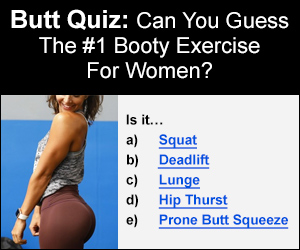Gluteal tendonitis, additionally referred to as gluteal tendinopathy, is a situation that plagues many, inflicting chronic hip aches and pain. But there may be hope, and it comes with the shape of “Unlock Your Glutes.” In this article, we no longer simplest delve into the intricacies of gluteal tendonitis however additionally screen how “Unlock Your Glutes” may be your guiding mild to an ache-loose life.
Table of Contents
Gluteal Tendonitis
Gluteal tendonitis, occasionally known as gluteal tendinopathy, impacts the gluteal muscle mass and tendons, with the gluteus medius being a not unusual place target. This situation results in aches, inflammation, and constrained mobility inside the hip area. If you are uninterested in the ache and longing for relief, you have come to the proper place. Here’s what you want to know.
Symptoms
Gluteal tendonitis is understood for offering plenty of symptoms, including:
- Persistent ache at the outer facet of the hip
- Discomfort and soreness while mendacity at the affected hip
- Increased ache at some stage in sports like walking, hiking stairs, or status on one leg
- Weakened hip muscle mass main to reduced mobility
- Tenderness and discomfort in the affected area.
Causes
Understanding the basic reasons for gluteal tendonitis is essential for a powerful remedy. Common elements include:
- Overuse or repetitive pressure at the hip muscle mass and tendons
- Poor hip biomechanics
- Natural aging and the degeneration of tendons
- A record of hip damage or surgery
- Excess weight, which puts more strain on the pelvis
Treatment
The course of treatment for tendinitis in the glutes may change depending on how severe the condition is. Here are a few typical methods:
- Rest and Activity Modification: Give your hip some time to heal and avoid activities that aggravate the discomfort.
- Physical Therapy: Work with a qualified physical therapist to strengthen your hip muscles and increase your range of motion.
- Medication: NSAIDs, or non-steroidal anti-inflammatory medicines, can reduce inflammation and pain.
- Corticosteroid Injections: In rare circumstances, injections can reduce inflammation and pain.
- Lifestyle Changes: For long-lasting benefits, keep a healthy weight and abstain from behaviors that worsen the illness.
Get Your Glutes Back: An Effective Treatment for Gluteal Tendonitis
For anyone suffering from gluteal tendinitis, “Unlock Your Glutes” is a game-changer—it’s not just another program. This all-inclusive program targets the gluteal muscles and tendons directly in order to develop and improve the functionality of your glutes. Include “Unlock Your Glutes” in your regimen to enhance hip flexor strength and range of motion as well as perhaps reduce gluteal tendonitis symptoms.
Why “Unlock Your Glutes” Is Effective
- Skillfully designed workout regimens that focus on the main issue.
- A focus on strengthening the hip muscles to address the underlying cause of gluteal tendonitis.
- Exercise regimens are designed to fit each person’s demands and advance at a comfortable speed.
- Practical and convenient, as you may access it from the comfort of your home.
How is the diagnosis of gluteal tendonitis made?
Physical examination is usually required for diagnosis, and an MRI or other imaging test may be performed to confirm the disease.
Is “Unlock Your Glutes” a preventative tool?

“Unlock Your Glutes” can help strengthen the gluteal muscles, lowering the chance of hip problems, including gluteal tendonitis, even if it’s not a preventive program.
Is there a risk involved with the “Unlock Your Glutes” program?
The main objective of “Unlock Your Glutes” is a safe and efficient exercise. However, before beginning any new exercise regimen, get medical advice.
How long does “Unlock Your Glutes” take to start showing results?
A few weeks of constant practice can yield varying results, but many people report increases in hip strength and mobility
I have gluteal tendinitis. Is it possible to mix “Unlock Your Glutes” with other treatments?
You can include this program in your treatment plan, of course, but you should always consult your healthcare physician for specific guidance.
Is there a money-back guarantee offered by “Unlock Your Glutes”?
Please check the program’s official website for more information on guarantees and refunds.
Rehabilitation and Treatment for Gluteal Tendonitis
Let’s now discuss gluteal tendonitis treatment and recovery in more detail:
- Gluteal tendonitis treatment: Rest, physical therapy, medication, and lifestyle modifications are available as forms of treatment.
- Symptoms of gluteal tendonitis: The first step towards efficient treatment is identifying the symptoms. Among them include chronic hip pain and discomfort, especially when doing specific tasks.
- Recovery period from gluteal tendinopathy: Depending on the severity of the condition and the therapy used, recovery periods might range from a few weeks to several months.
- Left buttock gluteal tendinitis: This condition can affect either buttock and therapy is the same.
- Exercises for gluteal tendinitis: “Unlock Your Glutes” provides a variety of hip-strengthening exercises that are indicated for those with gluteal tendonitis.
- Treatment of gluteal tendinopathy: Treatment includes rest, physical therapy, and exercise with a focus on strengthening the hip muscles.
- Location of gluteal tendinopathy pain: The pain is usually on the outside of the hip.
- Physiotherapy for gluteal tendinopathy: Physiotherapy plays a crucial role in improving hip strength and mobility during recovery.
- Gluteal exercises to avoid: Strenuous activities and exercises that aggravate the condition should be avoided.
- Is swimming good for gluteal tendinopathy: Swimming is a low-impact exercise that can be gentle on the hips and promotes recovery.
- Gluteus medius tendinopathy exercises: “Unlock Your Glutes” includes targeted exercises for the gluteus medius to address the cause of the problem.
- Gluteus medius tendinopathy symptoms: Symptoms may include constant pain, discomfort, and decreased hip mobility.



